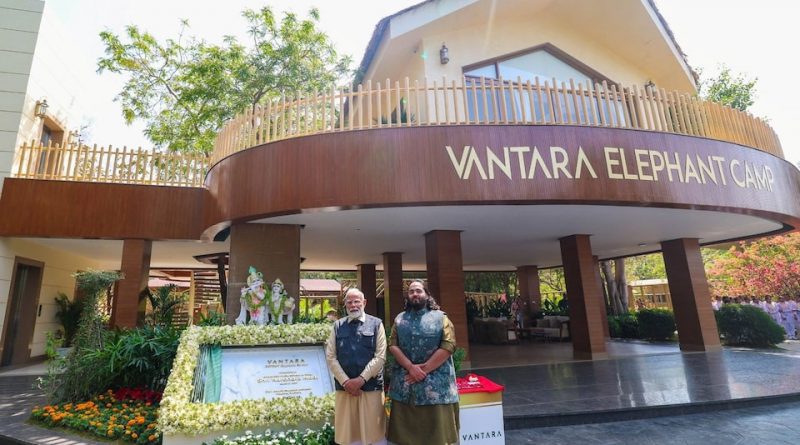India Urges UN Wildlife Body Not to Restrict Animal Imports Amid Scrutiny of Ambani’s Vantara Sanctuary
New Delhi – India has appealed to a UN wildlife body to avoid curbing its animal imports, asserting that oversight has been strengthened amid scrutiny surrounding the Ambani family’s Vantara animal sanctuary.
India has requested the United Nations wildlife trade authority to refrain from imposing restrictions on its imports of endangered species.
Officials said the country has enhanced its monitoring and inspection mechanisms following concerns raised over the Vantara animal rescue and rehabilitation centre in Gujarat.
The 3,500-acre facility, operated by the philanthropic arm of the Ambani family’s conglomerate, has drawn attention from wildlife groups and international authorities.
These organizations questioned the legitimacy of certain animal transfers and asked for clarification on import documentation and trade records.
An investigative committee, appointed by India’s Supreme Court, reviewed the allegations earlier this year.
Its findings in September stated that Vantara was not guilty of any irregularities and that all its imports were conducted in line with national and international wildlife laws.
Despite that conclusion, the Secretariat of the Convention on International Trade in Endangered Species of Wild Fauna and Flora (CITES) issued an assessment last week.
The report identified inconsistencies between exporter and importer data and advised India to review its verification systems for wildlife imports.
India responded through an official submission to CITES dated November 10, calling the suggested measures “premature and disproportionate.”
The submission argued that introducing restrictions at this stage would lack a solid legal basis and could disrupt the stability of the CITES framework.
According to the Indian government, such restrictions would amount to an “unwarranted suspension” of lawful imports.
It urged the UN body to consider India’s strengthened regulatory procedures and newly established oversight measures before making any decisions.
CITES, an international agreement among governments, regulates the trade of endangered plants and animals to ensure their protection and survival.
The organization acknowledged that Vantara maintains “exceptionally high standards” in its facilities but still advised temporary caution regarding new imports.
CITES recommended that India pause new import permits for endangered species until additional safeguards are fully operational.
It expressed concern that animals originating from the wild might be incorrectly documented as captive-bred under current procedures.
In reply, India emphasized that all recognized zoos and rescue centers are now subject to stricter checks and enhanced reporting systems.
The Central Zoo Authority was also instructed to implement deeper due diligence processes for future imports and acquisitions across the country.
Vantara, located in Jamnagar, currently houses around 2,000 animals, including giraffes, tigers, cheetahs, and chimpanzees.
Many of these species were imported from nations such as South Africa, Venezuela, and the Democratic Republic of Congo.
The total declared value of these shipments was estimated at about $9 million, which, according to Vantara, covered logistics, freight, and insurance expenses
Officials stated that there were no direct payments made for the wildlife itself, as all imports were handled through authorized breeding programs.
The CITES report noted that several animals were sourced from established breeding centers, which typically sell the species they produce.
India countered that these imports adhered to the documentation and verification standards laid out under existing wildlife trade laws.
Authorities also reiterated the findings of the Supreme Court-appointed panel, which confirmed that the imports were conducted transparently and ethically.
India said it continues to prioritize both biodiversity protection and responsible international collaboration in wildlife conservation.
Neither CITES nor Vantara have provided further comments regarding the submission as of this week.
The matter remains under review as discussions continue on how to balance environmental protection, legal trade, and the operation of private conservation projects.
The Indian government maintains that its recent reforms demonstrate an ongoing commitment to compliance and transparency.
Officials stressed that the updated framework is designed to prevent misuse, safeguard animal welfare, and support legitimate conservation and educational efforts.



